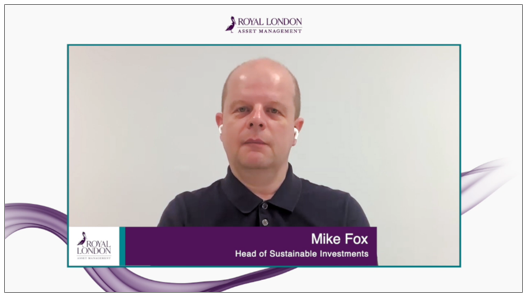
Heading out for a cold and dark run recently, I plugged in my headphones and turned on the latest episode of my favourite podcast. I’d been dreading this run all day but it turned out to be the easiest I had done in a long time, as I was so distracted by what I was hearing.
I have been an avid listener of this parenting podcast since I had my first baby almost five years ago. Covering all topics from lack of sleep to weaning, overwhelm to relationships, it’s guided me through a lot. It’s regularly flying high in the charts, so I know I’m not the only one.
The presenters feel like friends and the episodes like a much-needed catch up, a chance to hear you’re not alone at a time when you often feel just that as a new mum, a working mum, a juggling mum.
It’s a community in a world where ‘the village’ that once existed for those with young families is now so rare.
Resources like this are invaluable. They make a difference to people’s lives.
So you’ll understand why I was shocked at the episode in question, featuring a ‘finfluencer’ guest who describes himself as a ‘wealth enthusiast’ specialising in financial freedom.
I was almost stopped in my tracks when the chat turned to pensions.
One of the presenters confessed her lack of savings as a self-employed worker and her fears for the future. A perfect opportunity to educate the female listeners on the importance of pensions, you may think.
After all, new research has found women would need to work an extra 19 years to retire with the same pension savings as men, with those leaving work at 67 – the new UK state pensions age from 2026 – saving an average of £69,000, compared with £205,000 for men.
The reason for the disparity? Career gaps, caring responsibilities, childcare costs.
“Although there is a tax benefit to pensions, I am much more of the opinion you buy the stock market,” said the guest. “I have a series of strategies that will allow you to earn your right to higher degrees of risk.”
He casually listed equities, Reits and ETFs as possible tools, with little explanation of what on earth they actually are.
Yes, he pointed out that none of this should be taken as advice. But I was flabbergasted how such damaging ‘guidance’ can crop up so unexpectedly.
The topic of financial advisers then came up. “How do you know who to trust? How do you find somebody whose advice you would take?” asked the presenter.
The guest looked back to when he was running his own business. “My adviser and accountant were telling me to do ‘safer’ things than I was doing… A lot of advisers will tell you to ride it out, don’t worry, it will be back to break-even soon. That’s poor advice, in my opinion.
“Both watched me walk out of my job, retire and become financially free. And they’re still doing their same jobs. That shows the difference between financial advice and wealth building.”
Sounds interesting, this ‘wealth building’, right? I’ll come back to that in a bit. First, a little more adviser-bashing.
“Advice is how to get the best returns on your money over a very long period of time, which is uninspiring and can cause resentment, blowing it all on a souped-up car when you’re having a midlife crisis.
“Save 10% of your income? After 40 years, you’ll have four years’ income. That’s not really a complete strategy – I can’t retire with four years’ income. I started to question it.”
At this point, the presenters confessed they were “freaking out”. I imagine thousands of listeners were too. Is that how we want people to feel about saving for the long term?
Frankly, the industry should be feeling the same. The fact people can be scared off advice like this is nothing short of a disaster.
Wealth building, the guest went on, is about financial freedom.
“We really saw the power of this in Covid,” he said. “Most were forced to work from home. They were doing their job but choosing what order to do it in every day. There was no keeping up with the Joneses, so people rationalised their living expenses and were getting passive income in the form of furlough cheques.
“A lot felt more free even though they were trapped in their homes, because they realised they could do what they were showing up at a job to do from anywhere.
“If you can just figure out what you like doing, then monetise that and work out how you can do it from more places… that is a more fulfilling life because you are financially free.”
Oh, simple then. Try telling that to the NHS nurse or the single mother working two jobs around naps and bedtimes. Believe me, we’re all doing our best to make it work amid a crippling cost-of-living crisis and at the mercy of one of the most expensive childcare systems in the world.
My argument for more support for working mothers is perhaps for another day, but the last thing any of them needs is to be led down the garden path when it comes to their finances.
The industry needs to do more if it’s to gain any ground in this battle with damaging finfluencers.
The fact this one was given a platform essentially to tell women not to bother with a pension or ever consider a financial adviser is worrying enough. But we all know this isn’t the only platform and he is far from the only one.













We shouldn’t take mums for fools. If an “influencer” said “don’t ever feed your baby” then I’m sure they’d be given very short shrift!
There’ll always be people expressing all kinds of opinions (wise and stupid) but seeking to “cancel” the ones we consider stupid is a fools errand. Rather we should seek to educate and inform people so they can make the right choice for their specific circumstances. So, as you say, there’s always more for the industry to do.
A great example Maria on why the FCA needs to crack down on unregulated and unqualified “finfluencers”. I hope you reported this one to the FCA hotline
That is truly worrying. It is as worrying that the podcast people – who, from your description of previous topics which they did know about, seem to clearly have good intentions – appear to have been gulled.
The general level of comprehension of basic financial facts of life is so low, that this sort of thing is possible. As well as looking at products, charge caps, inertia based savings etc, the Government and Industry, should be looking at how to raise the level of understanding to that needed in a less paternalistic 21st Century, when most people still have expectations founded in the last.
Mums are very busy and many are looking after relatives
when they are in danger to be approached by
crooks and hackers.
I experienced the lot and explain, hoping the FCA
will take notice.
I cared for relatives wanting to die
and once wrote.
I am a carer
I have to be there
Day and night I have to care.
The cared for gets pampered
The carer is stressed.
Who dies first?
Who suffers less?
I was rewarded and inherited enough to live in comfort for the rest of my life but was defrauded
and now get by.
Mapp LSE chat
London South East ? LSE ? Confusing?
Well this rather highlights a few things:
1.These financial influencers should feel the full weight of the FCA.
2.Why would you put any credence on this numpty? How qualified is he/she to give any guidance at all?
3. Don’t you know where the off button is?
4. What about complaining to the podcaster and also the regulator
5. Yet again shows the venality of social media.
6. Trying to foretell what happens in 40 years time gives astrology a good name!
Great article, terrifying.
Who needs to be regulated the most ..
The regulated or the un-regulated ?